Music
Trailers
DailyVideos
India
Pakistan
Afghanistan
Bangladesh
Srilanka
Nepal
Thailand
StockMarket
Business
Technology
Startup
Trending Videos
Coupons
Football
Search
Download App in Playstore
Download App
Best Collections
Technology
Facebook is advertising for a human rights policy director to join its business, located either at its Menlo Park HQ or in Washington DC — with &conflict prevention& and &peace-building& among the listed responsibilities.
In the job ad, Facebook writes that as the reach and impact of its various products continues to grow &so does the responsibility we have to respect the individual and human rights of the members of our diverse global community&, saying it&s:
… looking for a Director of Human Rights Policy to coordinate our company-wide effort to address human rights abuses, including by both state and non-state actors. This role will be responsible for: (1) Working with product teams to ensure that Facebook is a positive force for human rights and apply the lessons we learn from our investigations, (2) representing Facebook with key stakeholders in civil society, government, international institutions, and industry, (3) driving our investigations into and disruptions of human rights abusers on our platforms, and (4) crafting policies to counteract bad actors and help us ensure that we continue to operate our platforms consistent with human rights principles.
Among the minimum requirements for the role, Facebook lists experience &working in developing nations and with governments and civil society organizations around the world&.
It adds that &global travel to support our international teams is expected&.
The company has faced fierce criticism in recent years over its failure to take greater responsibility for the spread of disinformation and hate speech on its platform. Especially in international markets it has targeted for business growth via its Internet.org initiative which seeks to get more people ‘connected& to the Internet (and thus to Facebook).
More connections means more users for Facebookbusiness and growth for its shareholders. But the costs of that growth have been cast into sharp relief over the past several years as the human impact of handing millions of people lacking in digital literacy some very powerful social sharing tools — without a commensurately large investment in local education programs (or even in moderating and policing Facebookown platform) — has become all too clear.
In Myanmar Facebooktools have been used to spread hate and accelerate ethic cleansing and/or the targeting of political critics of authoritarian governments — earning the company widespread condemnation, including a rebuke from the UNearlier this yearwhich blamed the platform for accelerating ethnic violence against MyanmarMuslim minority.
In the PhilippinesFacebook also played a pivotal role in the election of president Rodrigo Duterte — who now stands accused of plunging the country into its worst human rights crisis since the dictatorship of Ferdinand Marcos in the 1970s and 80s.
While in India the popularity of the Facebook-owned WhatsApp messaging platform has been blamed for accelerating the spread of misinformation — leading to mob violence and the deaths of several people.
Facebook famously failed even to spot mass manipulation campaigns going on in its own backyard — when in 2016 Kremlin-backed disinformation agents injected masses of anti-Clinton, pro-Trump propaganda into its platform and garnered hundreds of millions of American voters& eyeballs at a bargain basement price.
So ithardly surprising the company has been equally naive in markets it understands far less. Though also hardly excusable — given all the signals it has access to.
In Myanmar, for example, local organizations that are sensitive to the cultural context repeatedly complained to Facebook that it lackedBurmese-speakingstaff — complaints that apparentlyfell on deaf ears for the longest time.
The cost to American society of social media enabled political manipulation and increased social division is certainly very high. The costs of the weaponization of digital information in markets such as Myanmar looks incalculable.
In the Philippines Facebook also indirectly has blood on its hands — having provided services to the Duterte government to help it make more effective use of its tools. This same government is now waging a bloody ‘war on drugs& that Human Rights Watch says has claimed the lives of around 12,000 people, including children.
Facebookjob ad for a human rights policy director includes the pledge that &we&re just getting started& — referring to its stated mission of helping people &build stronger communities&.
But when you consider the impact its business decisions have already had in certain corners of the world ithard not to read that line with a shudder.
Citing the UN Guiding Principles on Business and Human Rights (and &our commitments as a member of the Global Network Initiative&), Facebook writes that its product policy team is dedicated to &understanding the human rights impacts of our platform and to crafting policies that allow us both to act against those who would use Facebook to enable harm, stifle expression, and undermine human rights, and to support those who seek to advance rights, promote peace, and build strong communities&.
Clearly it has an awful lot of &understanding& to do on this front. And hopefully it will now move fast to understand the impact of its own platform, circa fifteen years into its great ‘society reshaping experience&, and prevent Facebook from being repeatedly used to trash human rights.
As well as representing the company in meetings with politicians, policymakers, NGOs and civil society groups, Facebook says the new human rights director will work onformulating internal policies governing user, advertiser, and developer behavior on Facebook. &This includes policies to encourage responsible online activity as well as policies that deter or mitigate the risk of human rights violations or the escalation of targeted violence,& it notes.
The director will also work with internal public policy, community ops and security teams to try to spot and disrupt &actors that seek to misuse our platforms and target our users& — while also working to support &those using our platforms to foster peace-building and enable transitional justice&.
So you have to wonder how, for example, Holocaust denial continuing to be being protected speech on Facebook will square with that stated mission for the human rights policy director.
At the same time, Facebook is currently hiring for a public policy manager in Francophone, Africa —who it writes can &combine a passion for technologypotential to create opportunity and to make Africa more open and connected, with deep knowledge of the political and regulatory dynamics across key Francophone countries in Africa&.
That job ad does not explicitly reference human rights — talking only about &interesting public policy challenges… including privacy, safety and security, freedom of expression, Internet shutdowns, the impact of the Internet on economic growth, and new opportunities for democratic engagement&.
As well as &new opportunities for democratic engagement&, among the roleother listed responsibilities is working with FacebookPolitics - Government team to &promote the use of Facebook as a platform for citizen and voter engagement to policymakers and NGOs and other political influencers&.
So here, in a second policy job, Facebook looks to be continuing its ‘business as usual& strategy of pushing for more political activity to take place on Facebook.
And if Facebook wants an accelerated understanding of human rights issues around the world it might be better advised to take a more joined up approach to human rights across its own policy staff board, and at least include it among the listed responsibilities of all the policy shapers itlooking to hire.
- Details
- Category: Technology
A drone revolution is coming to sub-Saharan Africa.
Countries across the continent are experimenting with this 21st century technology as a way to leapfrog decades of neglect of 20th century infrastructure.
Over the last two years, San Francisco-based startup Zipline launched a national UAV delivery program in East Africa; South Africa passed commercial drone legislation to train and license pilots; and Malawi even opened a Drone Test Corridor to African and its global partners.
In Rwanda, the countrygovernment became one of the first adopters of performance-based regulations for all drones earlier this year. The countryprogressive UAV programs drew special attention from the White House and two U.S. Secretaries of Transportation.
Some experts believe Africadrone space could contribute to UAV development in the U.S. and elsewhere around the globe.
&The fact that [global drone] companies can operate in Africa and showcase amazing use cases…is a big benefit,& said Lisa Ellsman, co-executive director of the Commercial Drone Alliance.
Test in Africa
Itclear that the UAV programs in Malawi and Rwanda are getting attention from international drone companies.
Opened in 2017, MalawiDrone Test Corridor has been accepting global applications. The program is managed by the countryCivil Aviation Authority in partnership with UNICEF.
The primary purpose is to test UAVfor humanitarian purposes, but the program &was designed to provide a controlled platform for… governments…and other partners…to explore how UAVcan help deliver services,& according to Michael Scheibenreif, UNICEFdrone lead in Malawi.
That decision to include the private sector opened the launch pads for commercial drones. Swedish firm GLOBEHE has tested using the corridor and reps from Chinese e-commerce company JD have toured the site. Other companies to test in Malawicorridor include Belgian UAV air traffic systems company Unifly and U.S. delivery drone manufacturer Vayu, according to Scheibenreif.
Though the government of Rwanda is most visible for its Zipline partnership, it shaping a national testing program for multiple drone actors.
&We don&t want to limit ourselves with just one operator,& said Claudette Irere, Director General of the Ministry of Information Technology and Communications (MiTEC).
&When we started with Zipline it was more of a pilot to see if this could work,& she said. &As we&ve gotten more interest and have grown the program…this gives us an opportunity to open up to other drone operators, and give space to our local UAV operators.&
Irere said Rwanda has been approached by 16 drone operators, &some of them big names&—but could not reveal them due to temporary NDAs. She also highlighted Charis UAS, a Rwandan drone company, thatused the countrytest program, and is now operating commercially in and outside of Rwanda.
UAV Policy
Africacommercial drone history is largely compressed to a handful of projects and countries within the last 5-7 years. Several governments have jumped out ahead on UAV policy.
In 2016, South Africa passed drone legislation regulating the sector under the country&s Civil Aviation Authority. The guidelines set training requirements for commercial drone pilots to receive Remote Pilot Licenses (RPLs) for Remotely Piloted Aircraft Systems. At the end of 2017 South Africa had registered 686 RPLs and 663 drone aircraft systems, according to a recent State of Drone Report.
Over the last year and a half Kenya, Ghana, and Tanzania have issued or updated drone regulatory guidelines and announced future UAV initiatives.
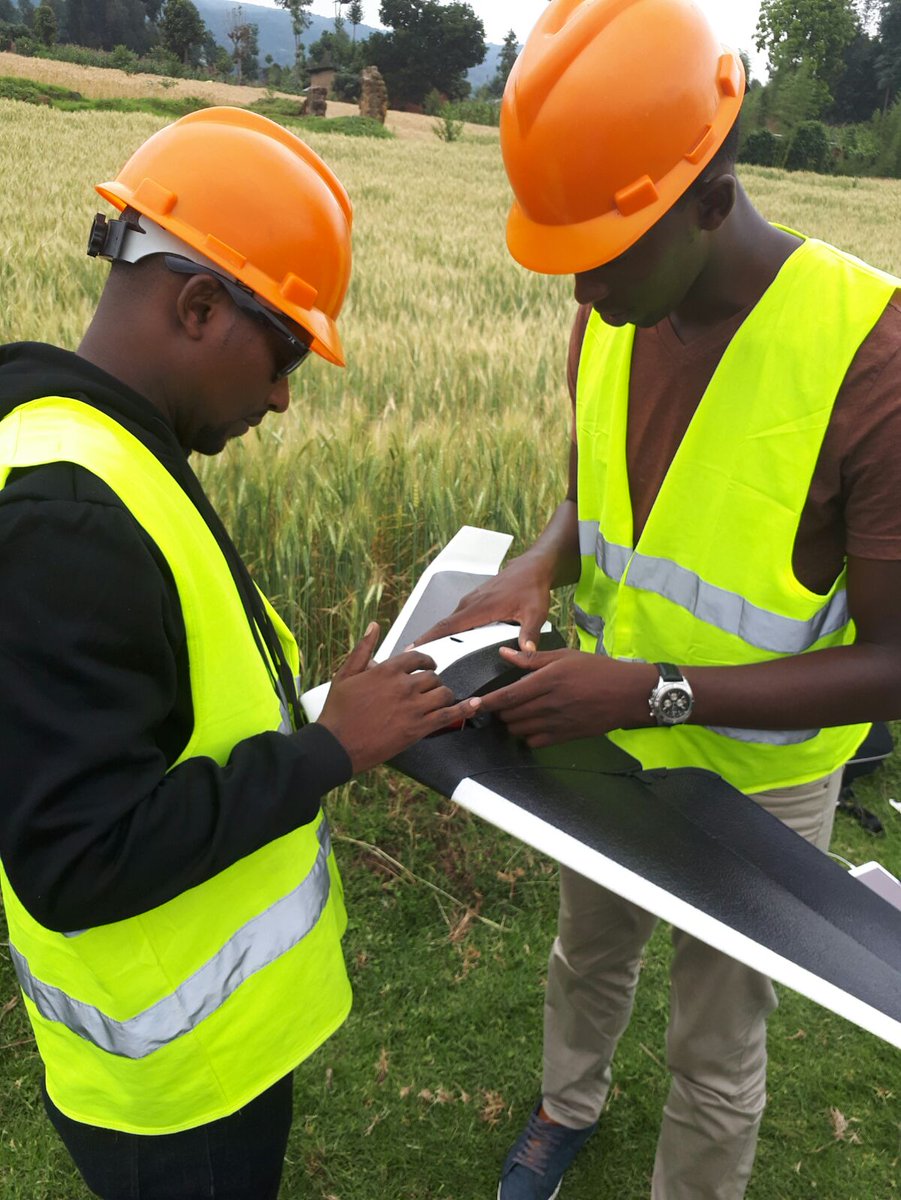
In 2018, Rwanda extended its leadership role on drone policy when it adopted performance-based regulations for all drones—claiming to be the first country in the world to do so.
So what does this mean
&In performance-based regulation the government states this is our safety threshold and you companies tell us the combination of technologies and operational mitigations you&re going to use to meet it,& said Timothy Reuter, Civil Drones Project Head at the World Economic Forum.
Lisa Ellsman, shared a similar interpretation.
&Rather than the government saying ‘you have to use this kind of technology to stop your drone,& they would say, ‘your drone needs to be able to stop in so many seconds,&& she said.
This gives the drone operators flexibility to build drones around performance targets, vs. &prescriptively requiring a certain type of technology,& according to Ellsman.
Rwanda is still working out the implementation of its performance-based regulations, according to MiTECClaudette Irere. They&ve entered a partnership with the World Economic Forum to further build out best practices. Rwanda will also soon release an online portal for global drone operators to apply to test there.
As for Rwanda being first to release performance-based regulations, thatdisputable. &Many States around the world have been developing and implementing performance-based regulations for unmanned aircraft,& said Leslie Cary, Program Manager for the International Civil Aviation AuthorityRemotely Piloted Aircraft System. &ICAO has not monitored all of these States to determine which was first,& she added.
Other governments have done bits and pieces of Rwandadrone policy, according to Timothy Reuter, the head of the civil drones project at the World Economic Forum. &But as currently written in Rwanda, itthe broadest implementation of performance based regulations in the world.&
Commercial Use Cases
As the UAV programs across Africa mature, there are a handful of strong examples and several projects to watch.
With Zipline as the most robust and visible drone use case in Sub-Saharan Africa.
While the startupprimary focus is delivery of critical medical supplies, execs repeatedly underscore that Zipline is a for-profit venture backed by $41 million in VC.
The San Francisco-based robotics company — that also manufactures its own UAVs — was one of the earliest drone partners of the government of Rwanda.
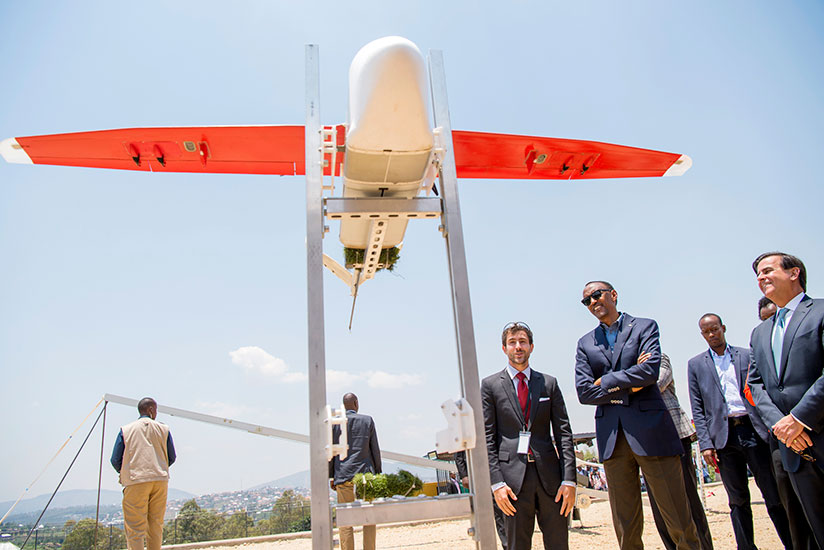
Zipline demonstration
The alliance also brought UPS and the UPS Foundation into the mix, who supports Zipline with financial and logistical support.
After several test rounds, Zipline went live with the program in October, becoming the worldfirst national drone delivery program at scale.
&We&ve since completed over 6000 deliveries and logged 500,000 flight kilometers,& Zipline co-founder Keenan Wyrobek told TechCrunch. &We&re planning to go live in Tanzania soon and talking to some other African countries.&
In May Zipline was accepted into the U.S. Department of TransportationUnmanned Aircraft Systems Integration Pilot Program (UAS IPP). Out of 149 applicants, the Africa focused startup was one of 10 selected to participate in a drone pilot in the U.S.& to operate beyond visual line of sight medical delivery services in North Carolina.
In a non-delivery commercial use case, South AfricaRocketmine has built out a UAV survey business in 5 countries. The company looks to book $2 million in revenue in 2018 for its &aerial data solutions& services in mining, agriculture, forestry, and civil engineering.
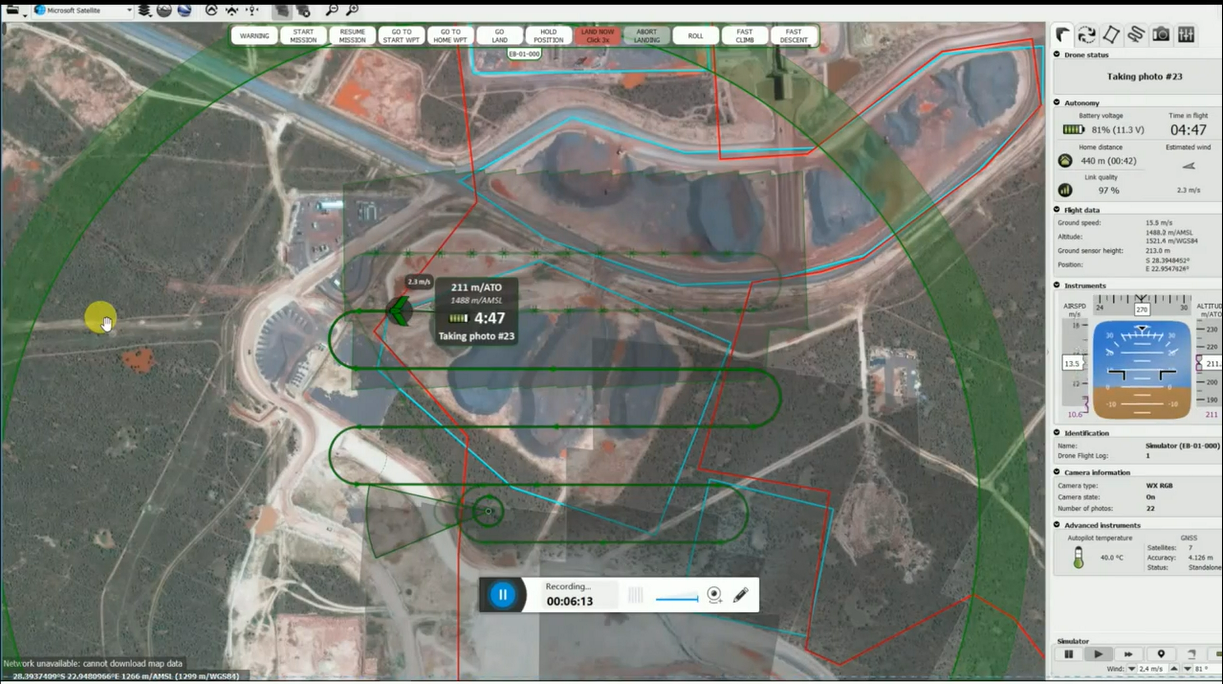
&We have over 50 aircraft now, compared to 15 a couple years ago,& Rocketmine CEO Christopher Clark told TechCrunch. &We operate in South Africa, Namibia, Ghana, Ivory Coast, and moved into Mexico.&
Rocketmine doesn&t plan to enter delivery services, but is looking to expand into the surveillance and security market. &After the survey market thatprobably the biggest request we get from our customers,& said Clark.
More African use cases are likely to come from the Lake Victoria Challenge —a mission specific drone operator challenge set in TanzaniaMwanza testing corridor. WeRobotics has also opened FlyingLabs in Kenya, Tanzania, and Benin. And the government of Zambia is reportedly working with SonyAerosense on a drone delivery pilot program.
Africa and Global UAV
With Europe, Asia, and the U.S. rapidly developing drone regulations and testing (or already operating) delivery programs (see JD.com in China), Africa may not take the sole position as the leader in global UAV development — but these pilot projects in the particularly challenging environments these geographies (and economies) represent will shape the development of the drone industry.
The continenttest programs — and Rwandaperformance-based drone regulations in particular — could advance beyond visual line of sight UAV technology at a quicker pace. This could set the stage for faster development of automated drone fleets for remote internet access, commercial and medical delivery, and even give Africa a lead in testing flying autonomous taxis.
&With drones, Africa is willing to take more bold steps more quickly because the benefits are there and the countries have been willing to move in a more agile manner around regulation,& said the WEFReuter.
&Therean opportunity for Africa to maintain its leadership in this space,& he said. &But the countries need to be willing to take calculated risk to enable technology companies to deploy their solutions there.&
Reuter also underscored the potential for &drone companies that originate in Africa increasingly developing services.&
Therea case to be made this is already happening with Zipline. Though founded in California, the startup honed its UAVs and delivery model in Rwanda.
&We&re absolutely leveraging our experience built in Africa as we now test through the UAS IPP program to deliver in the U.S.,& said Zipline co-founder Keenan Wyrobek.
- Details
- Category: Technology
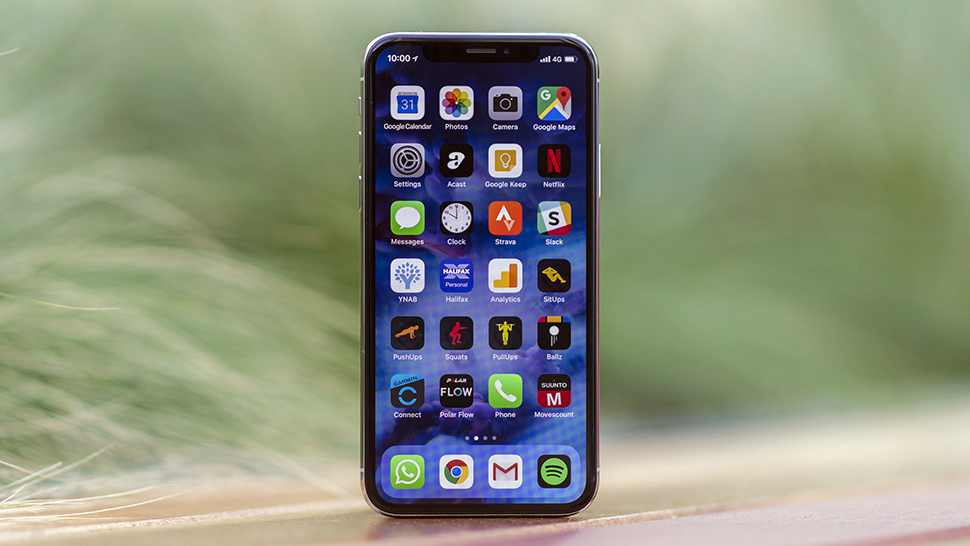

You should always be wary of links sent over email and social media – even if they seem to come from a trusted source – but it's worth being particularly suspicious this weekend: iOS security researcher Sabri Haddouche just discovered a new block of web code that can crash and restart an unsuspecting iPhone.
The carefully configured CSS code can
- Details
- Category: Technology
Read more: Watch out: there's a new web code exploit that can crash your iPhone
Write comment (91 Comments)

Apple launched the iPhone XS, the iPhone XS Max and the iPhone XR last week and one of the new features shared between these phones is dual SIM capability. Apple has implement this through an eSIM as well as a regular nano sized SIM, with China being the exception for getting a model with dual nano SIMs.
However, it looks like the model released in
- Details
- Category: Technology
Read more: E-SIM / dual SIM iPhone XS handsets will not be available in UAE
Write comment (92 Comments)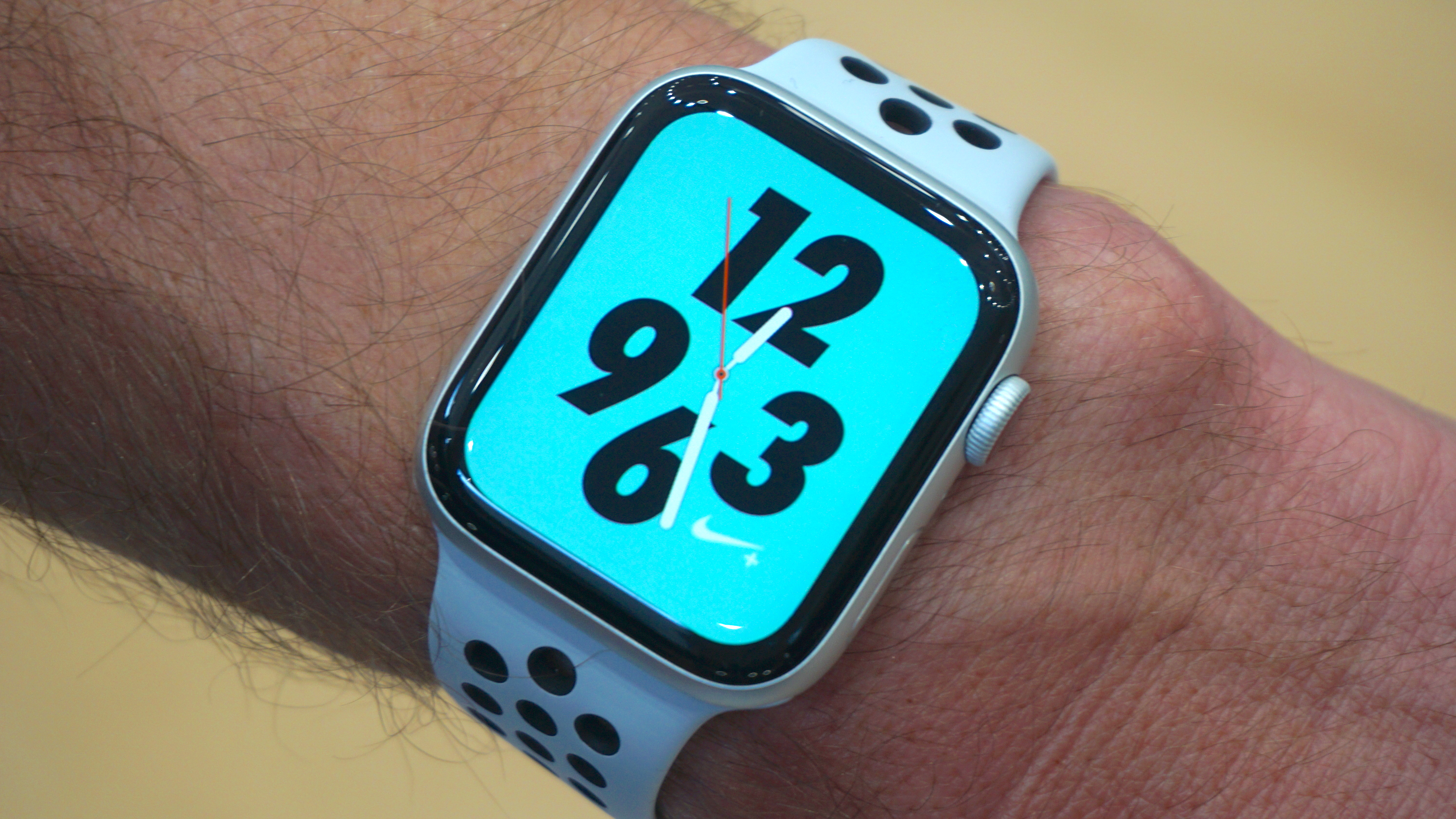

At the launch of the new Apple Watch 4, it was a bit of a scrum to get some decent hands on time with the device (especially against the backdrop of grabbing time with three new iPhones as well).
But in the melee there was something cool that we checked out - the new Apple Watch 4 faces that are coming with the new device.
The elemental faces -
- Details
- Category: Technology
Read more: Here are the cool new watch faces on the Apple Watch 4
Write comment (99 Comments)

If you ever use Google Assistant or the Google app to recognize a song you're listening to, that process should be faster and more accurate in the future, Google says – thanks to some advancements in its cloud-based artificial intelligence routines.
Sound Search (which is the official name of "hey Google, what's this song") has been upgraded to
- Details
- Category: Technology
Read more: Google's AI is now much better at recognizing songs that are playing
Write comment (93 Comments)Page 4159 of 5614

 12
12





